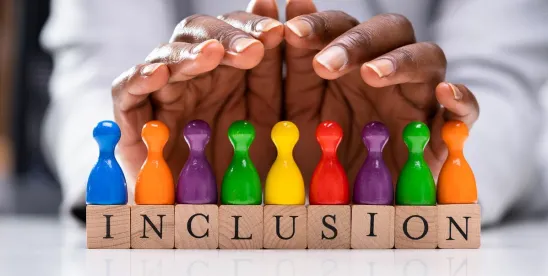Employers that foster a culture of belonging for all employees will have an advantage as Gen Z is projected to make up 27% of the workforce by 2025 and their expectations will change the workplace as we know it.
Born between the late 1990s and early 2010s, this generation is poised to be the most diverse yet (majority non-white by 2026) and values remote work and diversity above traditional factors like salary. A study conducted by mygwork found that 36% of Gen Z students and graduates identify as LGBTQIA+. The study illuminates Gen Z LGBTQIA+ students’ expectations regarding workplace inclusivity, underscoring a growing demand for work environments that prioritize diversity, equity, and inclusion.
The study surveyed more than 2,000 students and recent graduates from around the world on their perceptions and experiences of inclusion at their place of study or work. According to the study, LGBTQIA+ jobseekers prioritize inclusivity and diversity initiatives when evaluating potential employers. Of respondents, 83% stated they consider a company’s LGBTQIA+ policies and initiatives when deciding where to work. Among the signs they look for to determine whether the workplace is friendly to LGBTQIA+ individuals are transparent LGBTQ-inclusive policies, visible LGBTQIA+ role models (especially in leadership), and inclusion in the hiring process.
Being able to show up at work as authentically themselves is also a priority for this generation. Seven out of 10 respondents said being able to be out at work is highly important for them in weighing job offers. Of LGBTQIA+ students, 75% expressed reservations about working for a company where they could not be out at work. In fact, Gen Z LGBTQIA+ students are less likely to work for companies in which they do not feel their identities are supported. Eight out of 10 LGBTQIA+ students said they would avoid applying for a role at a company that has recently withdrawn its support for the LGBTQIA+ community.
One of the strongest indicators to LGBTQIA+ students that a workplace is inclusive is when they can see themselves reflected in the leadership of the company. Of LGBTQIA+ students, 49% said that seeing more visible LGBTQIA+ role models and allies would influence their decision to accept a job offer. This finding highlights the significance of representation and visibility in fostering a sense of belonging and empowerment within the workplace. When LGBTQIA+ employees see themselves reflected in leadership roles, they are more likely to feel valued and supported, contributing to greater employee engagement and retention.
It is not only the way workers search for and evaluate potential employers that is shifting with Gen Z, but also the way they show up to work. The study found that LGBTQIA+ Gen Z individuals are vocal advocates for change within their organizations. Of respondents, 81% indicated a willingness to challenge discriminatory behavior in the workplace, underscoring their commitment to creating more inclusive environments for themselves and their peers. This proactive stance toward addressing inequality reflects a broader cultural shift toward greater social consciousness and activism among younger generations.
Discrimination is still a significant concern for LGBTQIA+ students and recent graduates. Almost half (48%) of LGBTQIA+ students and graduates reported witnessing discrimination based on sexual orientation or gender identity at their universities. That number was higher among marginalized ethnicity and racial groups (52%) compared to white students (42%).
The top four concerns that LGBTQIA+ students reported about coming out at work are:
- Being discriminated against
- Bias
- Limited opportunities for training and development
- Limited access to opportunities for progress
The research in this study highlights that employer allyship matters to individuals entering the workforce. Few students, however, believe employers are taking enough action to be inclusive. Among LGBTQIA+ students, only 5% believe employers are engaging in enough allyship to support LGBTQIA+ employees.
For employers, this study’s findings have important implications. More than one-third of the incoming work generation identify as LGBTQIA+, and they bring a new set of values to the workplace. More than any other generation, Gen Z values authenticity and inclusivity in the workplace equal to or above traditional factors like salary.
It will become increasingly important for employers to implement meaningful policies and practices that foster a culture of belonging for all employees. By embracing diversity and championing inclusivity, organizations can not only attract top talent but cultivate environments where everyone can thrive and succeed.





 />i
/>i
